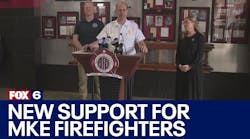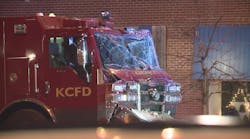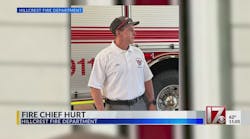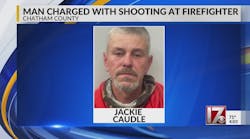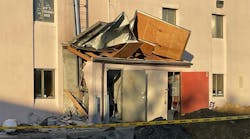Many have been the words that have been devoted to the importance of knowledge in the life of the world. Plato (409 BC) gave us an early bit of wisdom. In describing the importance of knowledge in the process for the selection of judges, he stated that, “…the judge should not be young, he should have learned of evil not from his own soul, but from late and long observation of the nature of evil in others: knowledge should be his guide, not personal experience.”
Many years later, Bacon gave the world a very definitive statement of the importance of power in the life of the world. In the Advancement of Learning (1547), he stated that, “… Knowledge is power.” As one who has been in the fire and emergency world since 1964, I am here to tell you that knowledge has served as a critical element in my life on more than one occasion.
Let me suggest to you that it is a combination of knowledge, tempered by personal experience, which provides the greatest chance for advancement in every field of endeavor. So it is with the fire service here in America. Far too much of the manner in which we perform our daily duties appears to come from what Plato might label experience from our own souls. There is often a lack of research into the knowledge that is needed for the safe performance of our duties. This is not a new idea.
In 2004, a wide range of fire service people came together in Tampa, FL, in an attempt to get a handle on the issues that were driving the loss of life problem within the American Fire Service. It was my privilege to be among that hard-working group of fire service leaders. Over the course of a number of days, our group distilled the essence of what were seen as the prevalent problems within our service.
Primary among these was the observation that there was a prevailing culture within the fire service that did not value safety as an organizational and operational priority. Risk-taking and danger seemed to go hand-in-hand. In addition, there seemed to be a love for tradition and danger, which trumped the concern of many for safety. Believe me when I tell you that the discussions were intense and powerful.
Towards the end of the conference, the break-out study groups came up with a wide range of suggestions as to things that might serve to drive a reduction in the annual number of deaths and injuries in the fire service. These were then honed down to a series of 16 recommendations to the American Fire Service. These are now what you and I know as the 16 initiatives, which were created to drive the change toward a safer fire service in America.
Let me share the one which I believe to lie at the heart of all of the efforts to create change in the fire service. As a matter of fact, it is the first of the initiatives to appear on the list.
We are all urged to, “Define and advocate the need for a cultural change within the fire service relating to safety; incorporating leadership, management, supervision, accountability and personal responsibility.” Let me suggest that you take some time to review these initiatives to see how the next 15 initiatives are structured to fulfill the imperative of the very first one.
My task here today is to speak to the importance of knowledge in the creation of any cultural change that might occur in our service. Changing anything in life requires an examination of what exists and then exploring the alternatives as to what changes in knowledge might be necessary to ease the transition from what is to what might be.
As an academic researcher, I am familiar with the need to build all new knowledge upon the base of what currently exists. The problem within our fire service lies with an inability to understand the need to break with traditions and practices that are not working and may, in fact, be the root cause of the deaths and injuries that are occurring with a sad aura of repetition.
If we are to succeed in lowering the death and injury rate among fire and emergency service personnel in America, we need to identify the necessary knowledge to accomplish this task. We must all then become advocates for knowledge. We cannot tolerate pockets of ignorance and indolence. This push for the sharing of knowledge must be part of our daily service delivery equation.
As the new knowledge begins to take root, the forces of change will then have a solid foundation of knowledge to support our drive for a safer fire service. My friends let me suggest to you that ignorance is not an option in our field. In our business, ignorance frequently equals death. Knowledge truly is power, and in our world, it is a power for extinguishing the unsafe acts that far too many among us seem to worship. Let me suggest that without knowledge, ignorance will rule the day.
HARRY R. CARTER, Ph.D., CFO, MIFireE, a Firehouse.com Contributing Editor, is a municipal fire protection consultant based in Adelphia, NJ. Dr. Carter retired from the Newark, NJ, Fire Department and is a past chief and active life member of the Adelphia Fire Company. Follow Harry on his A View From my Front Porch blog. He recently published several texts, including Leadership: A View from the Trenches and Living My Dream: Dr. Harry Carter's 2006 FIRE Act Road Trip. You can reach Harry by e-mail at [email protected].
